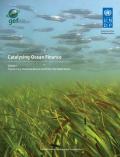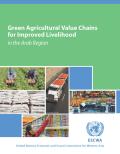
Azerbaijan has made significant strides in improving its economy over the past decade, as it embarked on a market-based economy and recovered from a significant downturn following the breakup of the Soviet Union. As a result, the government is now looking to implement a policy for country’s transition to a low-carbon, resource efficient and socially inclusive economy. This study presents an assessment of Azerbaijan’s economy, looking at ways that will foster such transition.
This guideline provides practical tools for city planners and decision makers to reform urban planning and infrastructure design according to the principles of eco-efficiency and social inclusiveness. It includes case studies from the Republic of Korea, the Philippines, Japan and Sri Lanka.
The report has been developed within the framework of UNESCAP Pilot Project Application and Integration of the “Green Growth” tools and policies into the strategic planning system of the Republic of Kazakhstan” with the support of the governmental bodies of the Republic of Kazakhstan and Korean International Cooperation Agency (KOICA).
The report informs the public about the green growth concept. It contains a methodology of the concept and assessment of eco-efficiency of national economy, an overview of the use of the green growth principal tools in Kazakhstan and recommendations on introduction of green growth principles into the strategic planning system.

